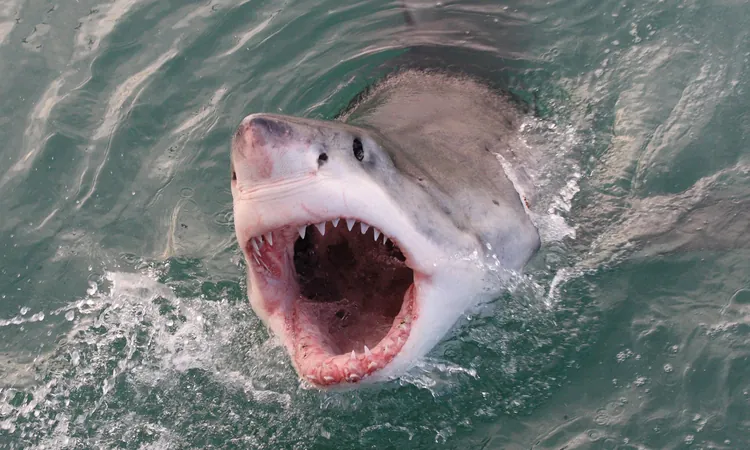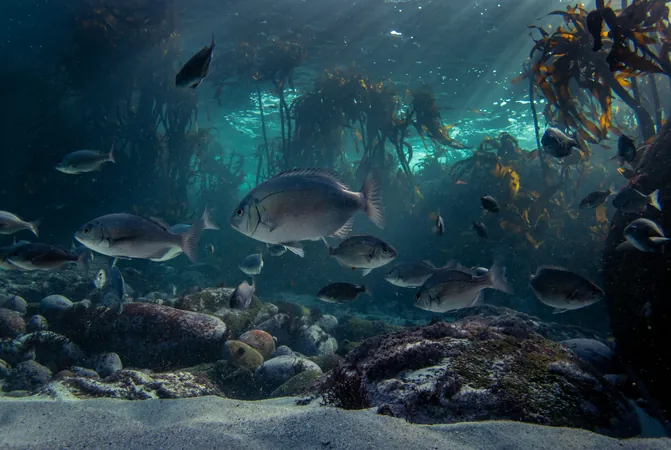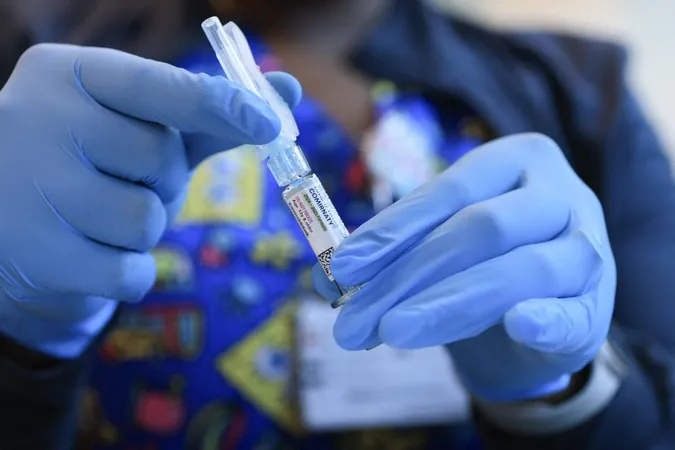
Revealed: Sharks Bite in Self-Defense, Not for Bloodthirst!
2025-04-26
Author: Wei
Sharks: Misunderstood Survivors
Often portrayed as fierce predators, sharks actually engage in biting humans primarily out of self-defense rather than malice. With only about 100 shark bites reported globally each year—and a mere 10% resulting in fatalities—these occurrences are exceedingly rare.
A New Perspective on Shark Behavior
Dr. Eric Clua, a leading shark researcher at Université PSL, emphasizes a groundbreaking study that flips conventional wisdom. He states, "Defensive bites by sharks on humans—triggered by human aggression—are a reality. Sharks shouldn't be deemed responsible for these incidents; it’s about survival instinct." This fresh insight paints sharks as cautious creatures, responding instinctively to perceived threats.
Threatened Sharks: Unveiling the Bites
Increased human activity in oceans has led to a rise in negative shark encounters. Sharks react defensively when they feel threatened, often leading to unprovoked bites during activities such as spearfishing. These bites are usually superficial and non-lethal.
Sometimes, It’s Self-Defense!
In French Polynesia, between 2009 and 2023, researchers recorded 74 shark bites, with four cases strongly linked to self-defense. It illustrates a global trend—about 4.6% of all recorded shark bites are defensive.
Why Do Sharks Bite?
Sharks might respond aggressively to human actions like spearfishing or simply intrusions into their territory. Dr. Clua mentions, "Some coastal sharks, like the gray reef shark, can become territorial and bold, leading to unexpected encounters with humans." Although some bites have resulted in injuries, fatalities remain rare.
Real Encounters: Lessons Learned
Case studies reveal how these defensive bites occur. For instance, when two spearfishermen injured a gray reef shark, the creature retaliated without lethal intent. Similarly, interactions with traps or scientists can trigger defensive reactions even from non-aggressive handling.
The Importance of Respect
The media's portrayal of sharks often lumps all incidents into one narrative of dangerous attacks, which does a disservice to conservation efforts. Understanding that many bites result from self-defense highlights the need for respect towards these creatures.
Reducing Unwanted Encounters
To minimize bite incidents, experts advise against physical interactions with sharks, even when trying to help. Dr. Clua warns, "These are potentially dangerous animals; even gentle handling can provoke a defense reaction." Respecting their space is key to safer interactions.
Shifting the Narrative
Recognizing that self-defense drives many shark incidents offers a new lens for managing and understanding these encounters. This shift can help reduce unwarranted fears and support vital conservation efforts, essential for maintaining healthy ocean ecosystems.
Final Thoughts: A Call for Respect and Understanding
Ultimately, the narrative surrounding sharks must evolve. They are not merciless killers but pragmatic survivors. By promoting accurate media representation and emphasizing respectful behavior, we can significantly contribute to global shark conservation initiatives.



 Brasil (PT)
Brasil (PT)
 Canada (EN)
Canada (EN)
 Chile (ES)
Chile (ES)
 Česko (CS)
Česko (CS)
 대한민국 (KO)
대한민국 (KO)
 España (ES)
España (ES)
 France (FR)
France (FR)
 Hong Kong (EN)
Hong Kong (EN)
 Italia (IT)
Italia (IT)
 日本 (JA)
日本 (JA)
 Magyarország (HU)
Magyarország (HU)
 Norge (NO)
Norge (NO)
 Polska (PL)
Polska (PL)
 Schweiz (DE)
Schweiz (DE)
 Singapore (EN)
Singapore (EN)
 Sverige (SV)
Sverige (SV)
 Suomi (FI)
Suomi (FI)
 Türkiye (TR)
Türkiye (TR)
 الإمارات العربية المتحدة (AR)
الإمارات العربية المتحدة (AR)